RWTH KNOWLEDGE HUB
RWTH’s Freedom Late Night event brought a vibrant mix of guests to the Ludwig Forum, offering talks, discussions, performances, and entertainment that celebrated diverse perspectives on freedom.
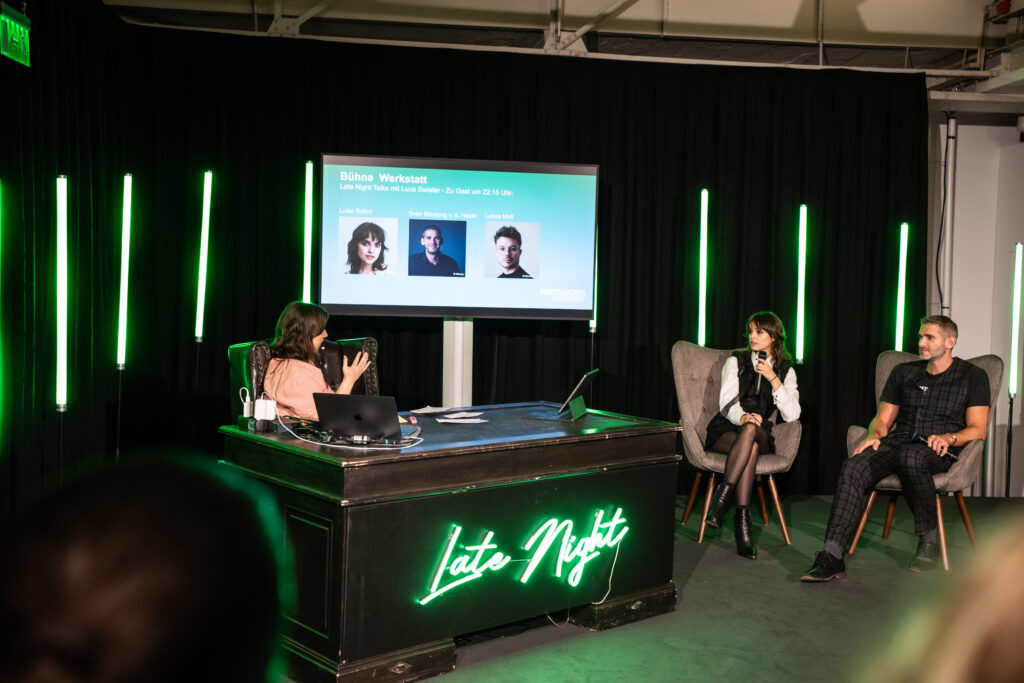
“Why not cook a pot of soup and share it with your neighbors?” Publicist Marina Weisband’s suggestion at RWTH’s second Late Night event was one of the many unconventional ideas presented to bridge divides within society.
Held Monday evening at the Ludwig Forum für Internationale Kunst, RWTH hosted a dynamic, entertaining, and insightful program on the theme of freedom. Moderated by journalist Claudia Kleinert and poetry slammer Luca Swieter, the event featured guests from culture, politics, sports, and academia, including Marina Weisband, actress Luise Befort, podcaster Dr. Ulf Buermeyer, former national soccer player Andreas Beck, and Borussia Mönchengladbach’s chief data analyst, Johannes Riegger.
Discussions across three stages explored freedom from sporting, cultural, scientific, philosophical, political, and social perspectives. Musical and artistic highlights included a specially choreographed performance by the dance ensemble Maureen Reeor & Company, the lively Popchorn pop choir, and the RWTH Big Band.
Throughout the evening, the unique setting of the Ludwig Forum underscored the importance of unity and the need to avoid societal divides. As Weisband noted, “With a bowl of soup in hand, engage with your neighbors to confront populist narratives together. Take the liberty to try something a bit daring now and then.”
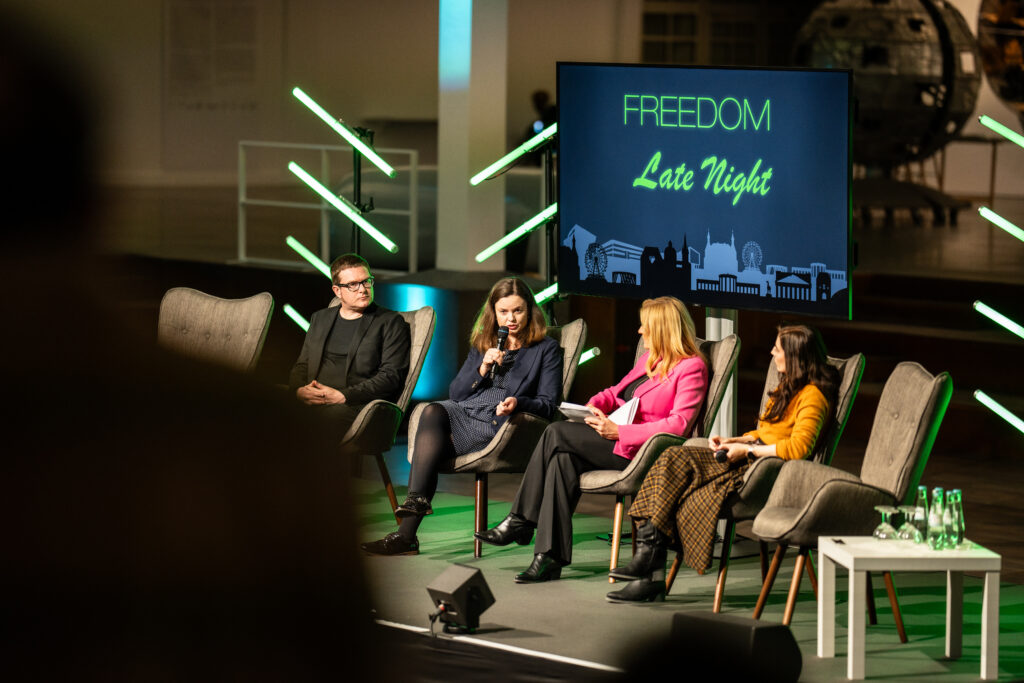
The complexities of today’s reality were echoed by Dr. Domenica Dreyer-Plum from RWTH’s Institute of Political Science, who observed that while many people are frustrated with the current political and social climate and are tempted to protest or support extremist parties, “the AfD only seemingly has an answer to the big questions.”
For the academic guests, discussions naturally turned to freedom in research. Professor Verena Nitsch, head of RWTH’s Institute of Industrial Engineering and Ergonomics and chair of the University’s Ethics Commission, emphasized that the Commission’s role is not to restrict research, “but to train researchers to anticipate risks”.
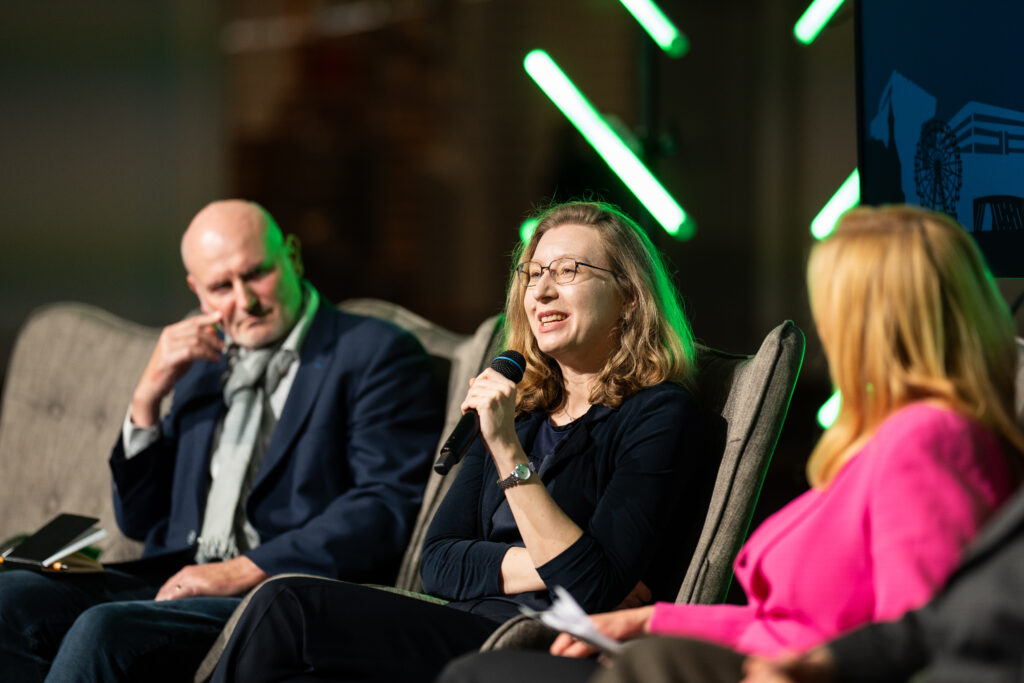
“We live in times where technology is powerful, but wisdom is lacking,” added Professor Stefan Böschen, spokesperson for RWTH’s Human Technology Center and co-director of the “Cultures of Research” Käte Hamburger Center, highlighting the ethical challenges posed by AI and advanced technology.
Former judge and podcaster Dr. Ulf Buermeyer offered a practical take on restoring trust in politics: “We need substantial investment in railways and infrastructure like bridges. People need to see and feel that progress is happening. We can’t just talk our way out of this crisis.”
For actress Luise Befort (Club der roten Bänder, Der Palast), freedom is something many take for granted: “I am allowed to work in my profession – unlike so many women around the world.” Befort sees this as a profound privilege she does not take lightly.
Professional footballers, however, face a more limited kind of freedom. Johannes Riegger, chief data analyst at Bundesliga club Borussia Mönchengladbach, and former national player Andreas Beck (VfB Stuttgart, Besiktas Istanbul) shared anecdotes about the intense monitoring they undergo. Beck described how their movements on the field are tracked with advanced technology, making performance data highly transparent. Yet, according to Riegger, the level of surveillance is even greater in the United States, where athletes in major leagues are subjected to round-the-clock monitoring. By comparison, the monitoring in Germany is seen as manageable and part of the job.
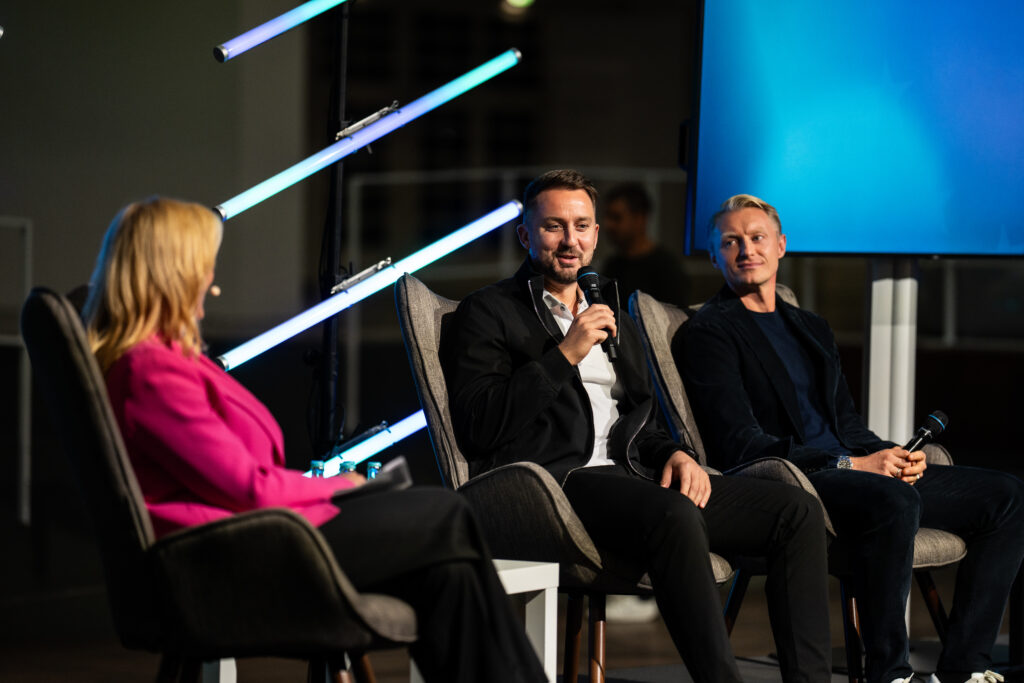
A diverse lineup of speakers shared their insights on freedom and technology. Among them, Luise Befort; queer artist Lukas Moll, who warned that “technology can discriminate, and algorithms can reinforce stereotypes”; Frank Albrecht of the Humboldt Foundation, who reflected on “the privilege of living in a country like Germany, where academic freedom is highly valued”; screenwriter Jana Forkel, who said, “When it comes to creative work like screenwriting, AI poses no threat yet – this is where human input remains essential”; Volucap CEO Sven Bliedung von der Heide, who noted, “At Volucap, we’re pioneering new possibilities in film production, though our goal isn’t to replace actors entirely”; and author Betül Hisim, who observed, “AI can be a source of inspiration but is far from replacing the essence of what makes us human.”
The RWTH Late Night event was organized by the RWTH Knowledge Hub as part of the Freedom of Research Summit, a collaboration between the Stiftung Internationaler Karlspreis zu Aachen, the Knowledge Hub, and the Cultures of Research Käte Hamburger Center.
The RWTH Knowledge Hub is a vital instrument for transferring knowledge to society. “Knowledge isn’t only created at RWTH; it’s essential that we also share it with society – as we are doing tonight with the Late Night,” said Professor Matthias Wessling, Vice-Rector for Research Transfer at RWTH.

Despite their diverse perspectives, all the speakers agreed on one message: that freedom and democratic values require active effort. To quote Goethe: “This is the highest wisdom that I own; freedom and life are earned by those alone who conquer them each day anew.”
Photo Credits: Christian van’t Hoen


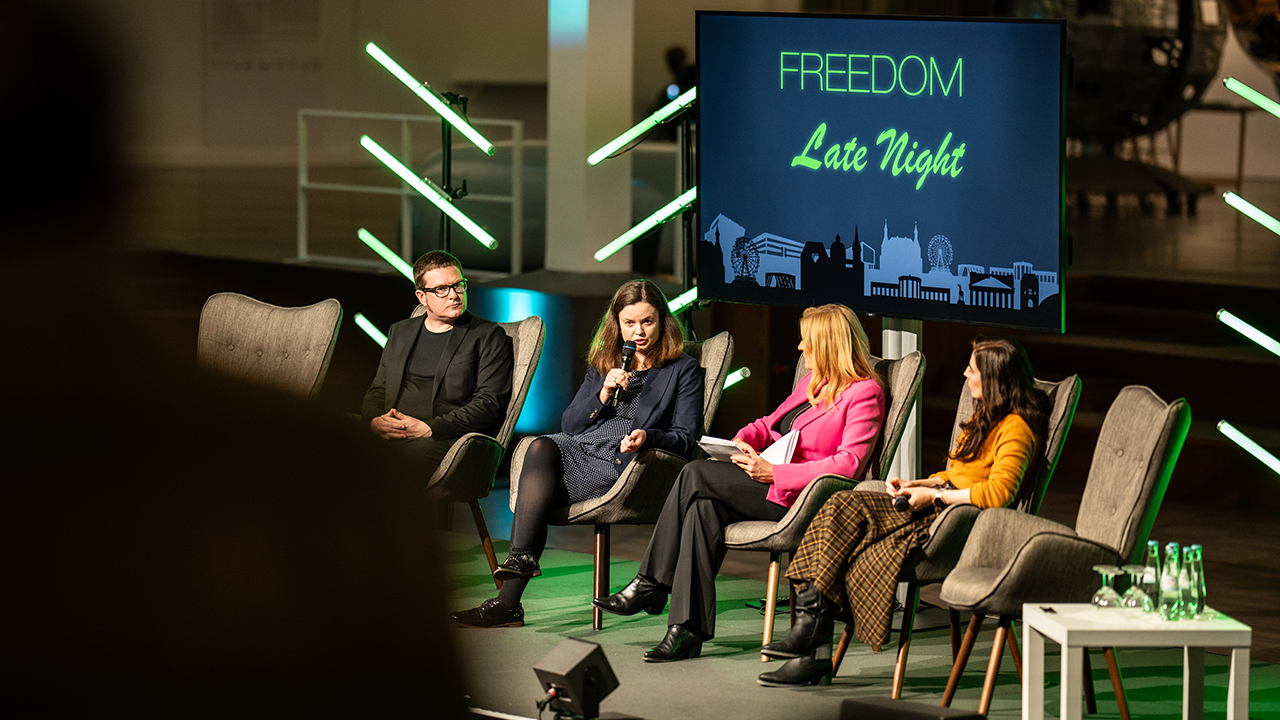
One Comment
Comments are closed.